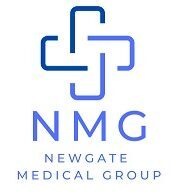What is a structured medication review?
A structured medication review is a meeting with a doctor, pharmacist or other prescriber to talk about the medicines you are currently taking; an opportunity for you to discuss your medication and ensure that you are getting the best from the medicines that are prescribed for you. This meeting may take place at the GP surgery or telephone depending on circumstances and coronavirus safety measures.
Why do I need a review?
The aim of the structured medication review is to check that your prescribed medicines are still the most appropriate ones and that you are getting the best out of them.
When you are first prescribed a medicine it is usually the best one for you, however, things change:
- You might have developed a side effect
- Your health may have changed, such as developing a long-term condition or a change in a long-term condition you already have
- The way your body handles medicines changes over time and may require dose or medication changes
Any of these reasons, as well as others, can mean the medicine might not be right for you anymore.
What happens at a structured medication review?
The review will be carried out by a doctor, pharmacist (or sometimes another prescriber). They will ask you some questions and also look at your medical record; this will allow them to check you are on the medication that is right for you.
The review will usually be between 15 and 30 minutes long but could be longer depending on how many medicines there are to consider. You will have the chance to ask any questions or raise any concerns you have about your medicines.
The doctor or pharmacist may suggest some changes to your medicines. They will explain these changes and why the change will benefit you.
These changes may include: a change to a new or different version of a medicine, changing the dose, changing the time of day you take your medicine, starting a new medicine or stopping a medicine.
How will my review be carried out?
The doctor or pharmacist will carry out your review around some main themes:
- Patient Centeredness – what matters to you?
- Aims – Do you think the medicine is making you feel better? Think about what is important to you about your treatment
- Need – is the medicine essential? Could lifestyle changes achieve the same or similar benefits without the need for medication?
- Effectiveness – is the medicine controlling your symptoms?
- Safety – is the medicine making you unwell (side effects)?
Questions you may want to ask:
Make a list of questions that you may have about your medicines. Some questions that you may wish to consider:
- What is the medicine for?
- Why is it important to take this medicine(s)?
- When and how do I take it?
- How long is the medicine(s) to be taken for?
- How do I know the medicine is working?
- What should I do if I have problems with the medicine?
- Are there any medicines or food that I should avoid taking whilst on these medicine(s)?
- What will happen if I miss a dose of the medicine or stop taking it?
Do I need to bring anything with me?
It would be helpful if you could make a list of all of your medicines or, if you are coming to the surgery, bring all your medicines with you; including any you might have bought (this includes vitamins or herbal remedies).
- If you are making a list, please include:
- Any medicines that are prescribed for you.
- Any medicines that you buy over the counter from the chemist or supermarket or other stores e.g. herbal medicines, vitamins etc.
- Any prescribed medicines that you no longer take.
Can I bring somebody with me?
Due to Covid restrictions, all reviews are currently being conducted by telephone. We will call you at the scheduled time. If you wish a third party to be present, or for our team to talk to someone on your behalf (e.g. carer, family member or an interpreter), that is perfectly acceptable.
Where can I get further information about my medicines?
- Your local pharmacy
- Your GP Practice
